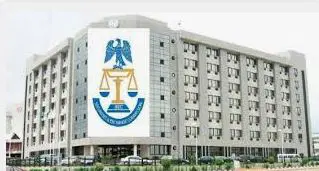The Director General of the Securities and Exchange Commission (SEC), Dr. Emomotimi Agama, has emphasized the untapped potential of Nigeria’s capital market in addressing the country’s significant infrastructure deficit. Speaking at the “Financing the Future in Nigeria” event organized by the International Finance Corporation (IFC) and the Milken Institute in Lagos, Dr. Agama highlighted the capital market’s ability to mobilize funds for various sectors of the economy and urged that it could similarly finance Nigeria’s infrastructure needs with increased awareness.
Dr. Agama stressed the necessity for enhanced investor education, pointing out that both regulators and market operators must collaborate to strengthen the capital market as a key platform for raising funds. He called for innovative, market-driven initiatives to encourage participation.
“We have the capacity. The potential for debt financing in Nigeria’s capital market remains largely unexplored because many people are unaware of its benefits. That is why we are making efforts to raise awareness. The capital market is the barometer of any economy,” he stated.
He further noted Nigeria’s extensive infrastructure requirements, which encompass sectors such as transportation, healthcare, education, and agriculture. Addressing these needs across the country’s 36 states and the Federal Capital Territory will require more than $50 billion, according to Dr. Agama.
In reference to President Bola Tinubu’s ambition for Nigeria to grow its economy to $1 trillion, Dr. Agama affirmed that this goal is attainable through the capital market, as well as sectors like mining, oil and gas, construction, and housing. He emphasized the capital market’s pivotal role in realizing these aspirations and the SEC’s commitment to facilitating this process.
During the same event, Mr. Tom Ceusters, Director of Treasury Capital Markets & Investments at IFC, underscored the importance of educating mid-level regulators and market infrastructure participants. He mentioned that the IFC has successfully trained 224 alumni from 56 countries, including 22 from Nigeria, to enhance capital market development.
Ceusters remarked on the positive impact of the IFC’s partnership with Nigeria over the past eight years, emphasizing the ongoing commitment to supporting capital market growth and development in the country

